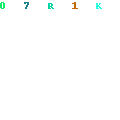Gambling Is A Brain Disease
Once a deposit is made, you’re free to claim another no deposit bonus.Note that there are often cash-out limits associated with bonuses. Ruby slots casino no deposit bonus codes 2019. A deposit must be made first and that can be with or without a bonus claimed. In the case of free chips, that cash-out limit is equal to the face value of the bonus or $100 if the face value is less than $50.
This is the science behind the reason that addiction is called a brain disease. Once the brain believes that it needs, in this case, gambling; a person is driven to continue the activity in order. Problem gambling is an urge to gamble continuously despite harmful negative consequences or a desire to stop. Problem gambling is often defined by whether harm is experienced by the gambler or others, rather than by the gambler's behaviour. Dec 17, 2011 For many decades it's been widely accepted that alcoholism (or addiction) is a disease. The 'disease concept' is taught in addiction training programs and told to patients in treatment programs. New research has found that gambling addiction may be linked to an altered opioid system in the brain, causing reduced feelings of euphoria. All forms of addiction are due to biological alterations in the brain. These brain irregularities have often been seen in cocaine and heroin abusers, as well as alcoholics. Aug 15, 2011 Addiction is a chronic brain disorder and not simply a behavior problem involving alcohol, drugs, gambling or sex, experts contend in a new definition of addiction, one that is not solely related. Compulsive gambling is a disorder that affects millions in the U.S. Get the facts on gambling addiction causes, risk factors, symptoms, signs, diagnosis, treatment, negative effects, complications, and support. With gambling addiction on the rise and across Europe in particular, the voices calling gambling a disease has been gaining grounds. The UK Gambling Commission announced a significant shift in their approach to gambling as they said that gambling is a disease, and therefore, it should be addressed adequately by the NHS.
Is Gambling Addiction A Disease

Is Gambling Addiction A Brain Disease
